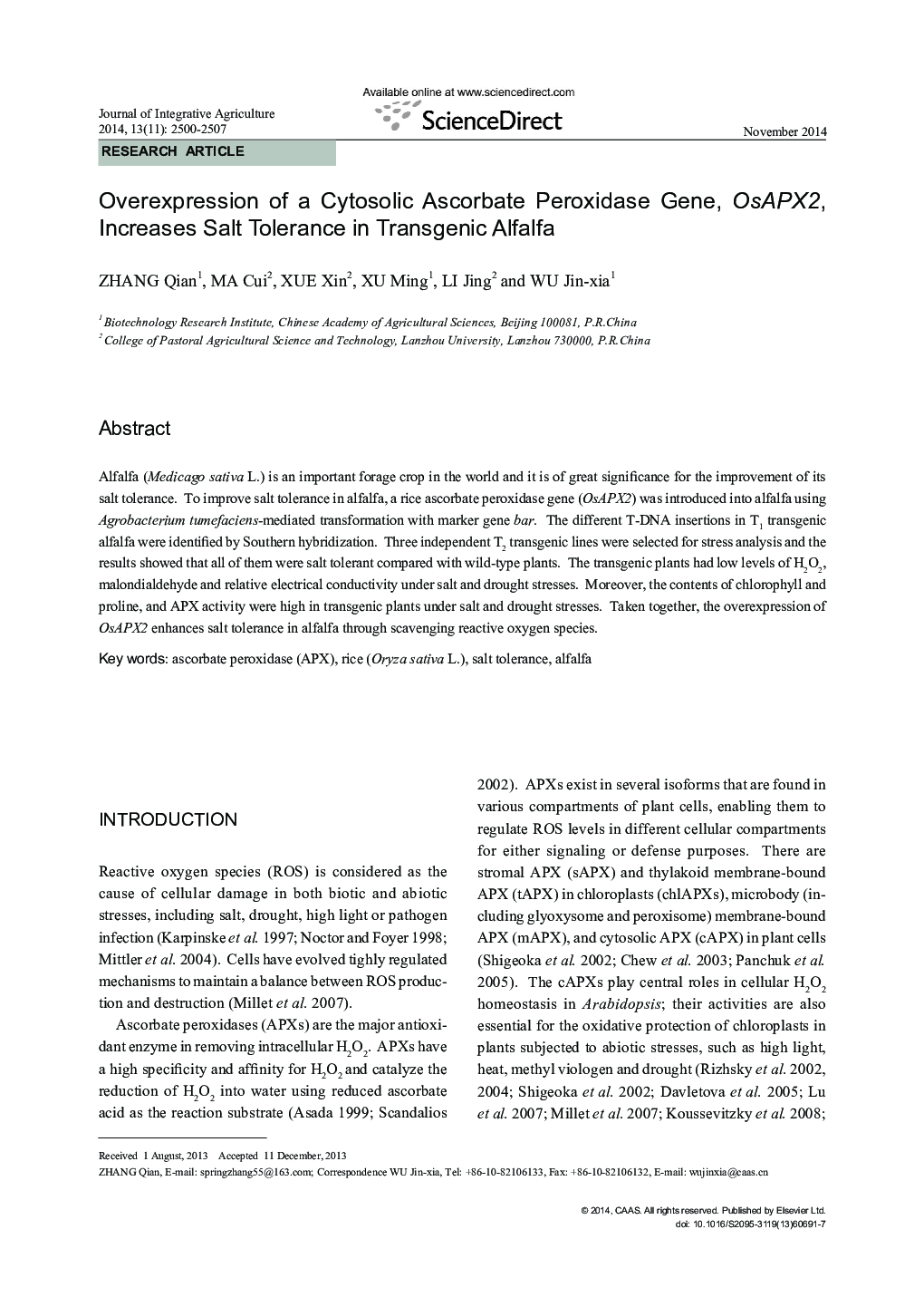| Article ID | Journal | Published Year | Pages | File Type |
|---|---|---|---|---|
| 4494446 | Journal of Integrative Agriculture | 2014 | 8 Pages |
Alfalfa (Medicago sativa L.) is an important forage crop in the world and it is of great significance for the improvement of its salt tolerance. To improve salt tolerance in alfalfa, a rice ascorbate peroxidase gene (OsAPX2) was introduced into alfalfa using Agrobacterium tumefaciens-mediated transformation with marker gene bar. The different T-DNA insertions in T1 transgenic alfalfa were identified by Southern hybridization. Three independent T2 transgenic lines were selected for stress analysis and the results showed that all of them were salt tolerant compared with wild-type plants. The transgenic plants had low levels of H2O2, malondialdehyde and relative electrical conductivity under salt and drought stresses. Moreover, the contents of chlorophyll and proline, and APX activity were high in transgenic plants under salt and drought stresses. Taken together, the overexpression of OsAPX2 enhances salt tolerance in alfalfa through scavenging reactive oxygen species.
